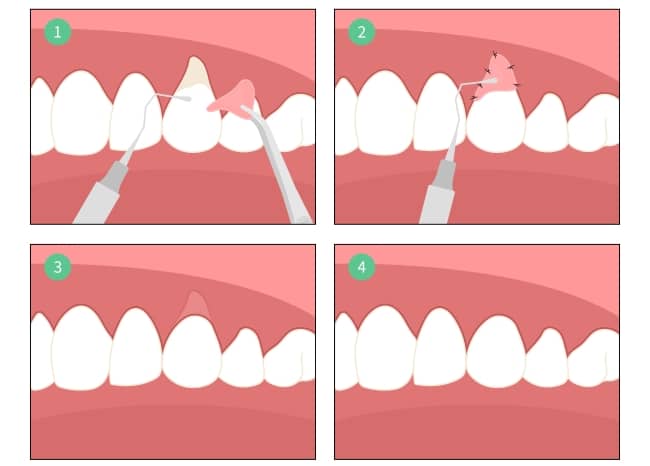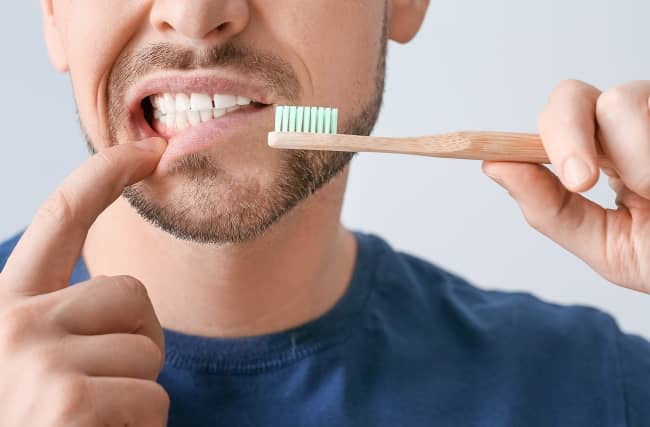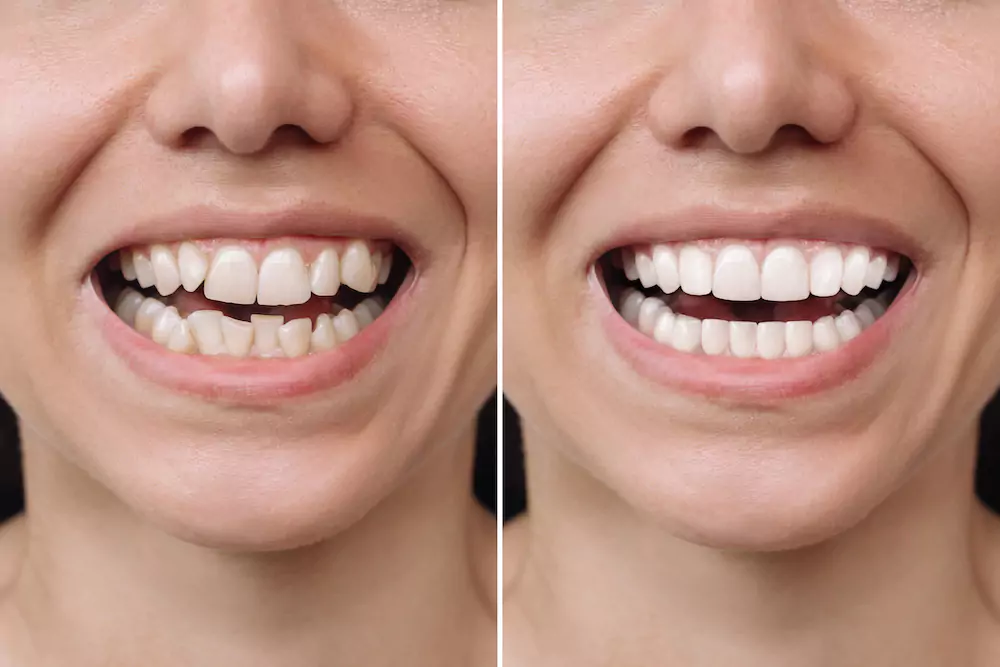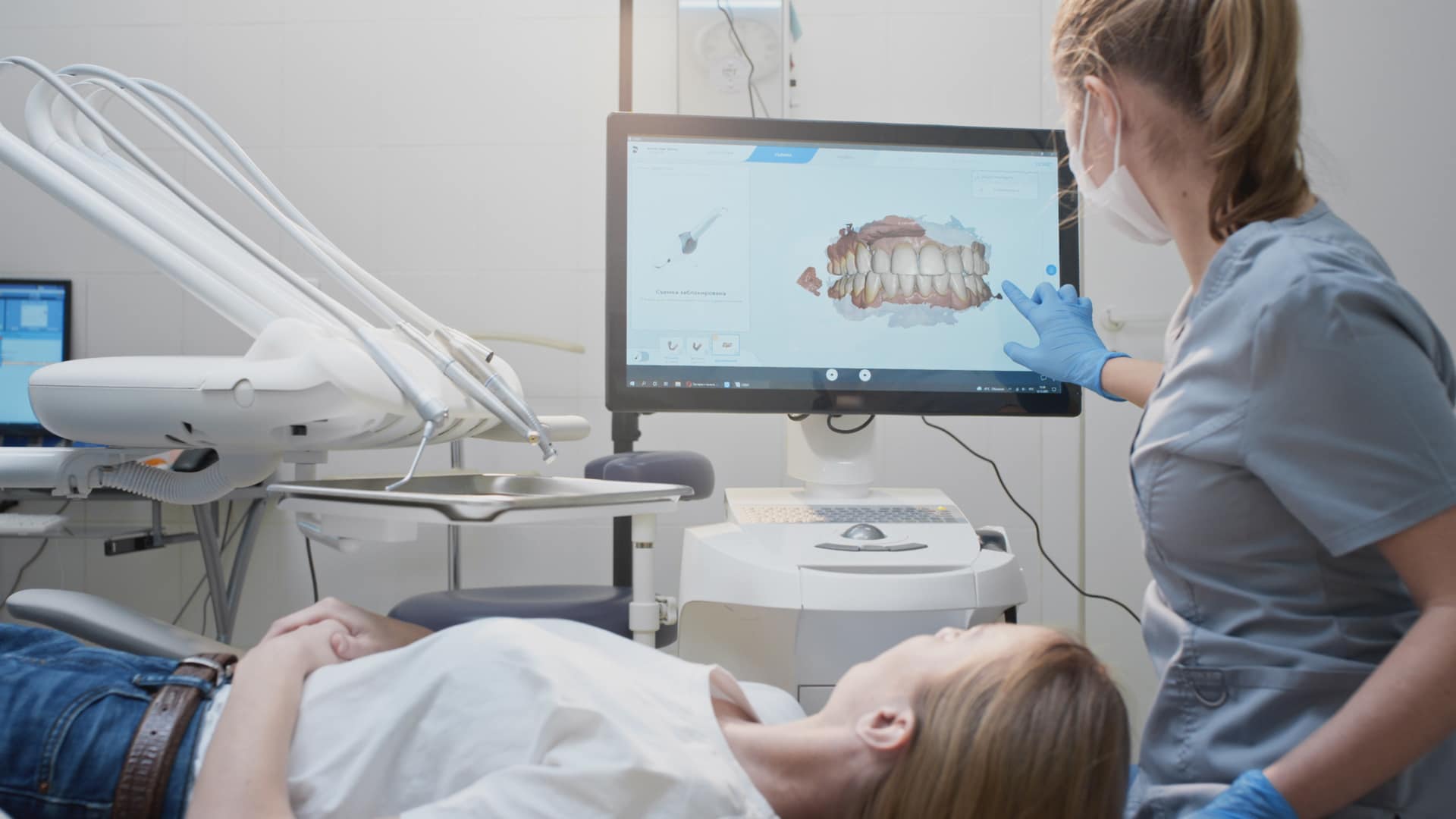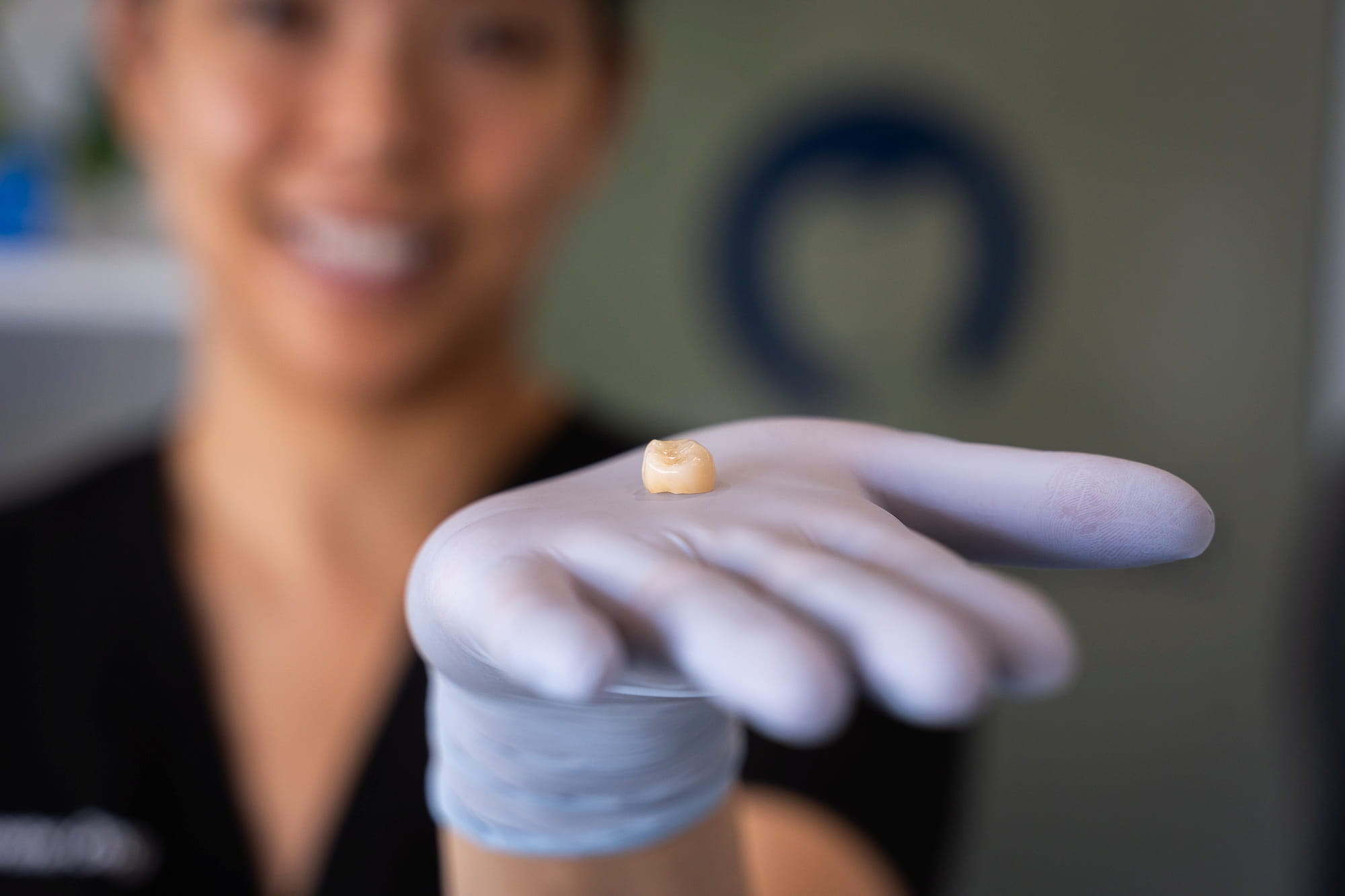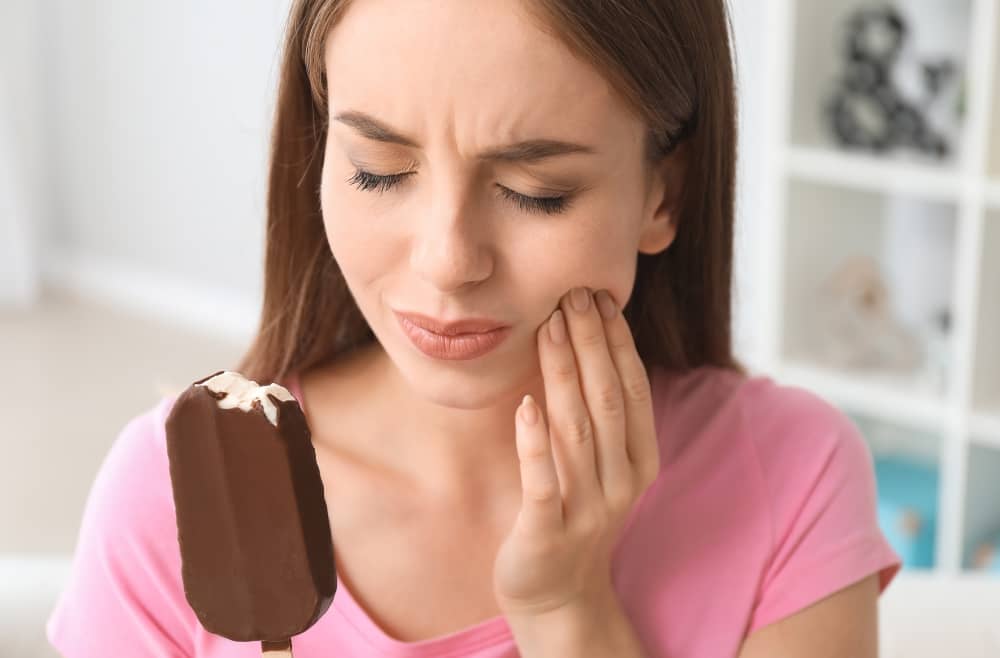
How to Help Sensitive Teeth: Causes and Treatments
If you’ve looked forward to a sip of steaming coffee only to be met with a sharp, painful sensation, then you know how frustrating tooth sensitivity can be.
This common issue often occurs when a person eats or drinks something sweet, sour, cold, or hot. It can make simple activities, such as eating, drinking, or even brushing your teeth, uncomfortable.
Fortunately, there are proven ways to reduce tooth sensitivity, which we’ll cover in this article. We’ll also look at the science behind tooth sensitivity and its main causes.
How to Help Sensitive Teeth
1. Use A Desensitising Toothpaste
One of the most common treatments for sensitive teeth is the use of desensitising toothpaste. These toothpaste types contain ingredients that form a barrier to block the transmission of pain signals from the teeth to the nerves. Talk with your dentist to see if a desensitising toothpaste is a good option for you.
2. Ask Your Dentist About Fluoride Treatment
Fluoride treatment can help strengthen the enamel on your teeth, fortifying them against sensitivity. Your dentist may recommend using a fluoride rinse or gel, and may also offer recommendations on a fluoride toothpaste.
3. Consider Gum Grafting
Gum grafting is a surgical procedure that involves removing tissue from one part of the mouth and transplanting it to the gum line. This procedure covers exposed tooth roots, helping to decrease tooth sensitivity.
4. Consider Root Canal Treatment
In cases where tooth sensitivity is the result of a damaged or infected tooth, root canal treatment may be necessary. The procedure involves removing the damaged nerve and filling the tooth with a special material to restore integrity and function to the tooth.
Related Reading: 5 Things to Know About Root Canals
5. Make Changes to Your Diet
Along with supporting overall health, eating a balanced, healthy diet can help reduce tooth sensitivity.
Combatting tooth sensitivity is also about what you do NOT eat. Highly acidic foods can damage tooth enamel and frequent consumption of sugary foods can cause severe decay, both of which can lead to tooth sensitivity.
Here are some tips for using diet to reduce tooth sensitivity:
- Avoid acidic foods or beverages
- Limit your intake of sugary foods and beverages such as juice, desserts, candies, ice cream, and soda
- Opt for vitamin A-rich veggies such as carrots and sweet potatoes
- Avoid or limit foods or beverages that are extremely cold or hot
- Limit your intake of red wine, tea, alcohol, and coffee
- Take care when consuming vinegar-based foods (i.e. pickles, olives, etc.)
- Limit your intake of citrus fruits and tomatoes
- Do not chew on objects, especially ice cubes
- Watch your caffeine intake (soda, coffee, and tea can reduce saliva production, contribute to dry mouth, and make tooth sensitivity worse)
- Consume teeth-healthy foods that are gentle on sensitive teeth, such as eggs, fatty fish, leafy greens, unsweetened yoghurt, water, celery, carrots, and high-fibre foods
Related Reading: The Negative Effects of Sugar on Your Teeth
6. Ask Your Dentist About A Custom-Fitted Splint
If you grind your teeth at night, ask your dentist about a custom-made splint. A custom-made splint can help reduce teeth grinding. In turn, this helps reduce teeth sensitivity.
7. Avoid Harsh Whitening Products
Tooth whitening products often feature harsh ingredients that can irritate the gums and aggravate sensitive teeth. Ask your dentist about how to safely whiten your teeth, how often you should whiten your teeth, and which products he or she recommends.
When using a whitening product, make sure to follow the instructions exactly and avoid whitening your teeth too often. Whitening strips are often the worst offenders since they are extremely concentrated. Keep your whitening sessions short and make sure to follow instructions regarding usage and frequency.
You can also ask your dentist about professional teeth whitening treatments. Your dentist can whiten your teeth, with a special focus on minimising any sensitivity issues.
8. Attend Regular Dental Check-Ups
Regular dental check-ups are one of the best ways to maintain and protect your oral health. Twice a year visits to your dentist can help identify any dental issues that may be causing sensitivity.
Once your dentist determines any underlying issues and identifies the cause of your sensitivity, your dentist can develop a personalised approach to managing and reducing your tooth sensitivity.
Also, be sure to contact your dentist immediately if you notice a tooth that is chipped, cracked, or broken. Tooth trauma needs to be repaired immediately to reduce your chance of experiencing tooth sensitivity.
Related Reading: Why Dental Checkups Are Important
9. Rinse With Water After Meals
Want an easy way to reduce tooth sensitivity? Try rinsing your mouth with water throughout the day, particularly after you eat or drink anything sugary or acidic.
Frequent water rinses help naturally clear away food particles, prevent dry mouth, and lower the mouth’s pH. These are all important factors in decreasing tooth sensitivity.
It is also beneficial to stay hydrated by drinking enough water. This benefits your overall health, as well as your oral health, by helping to prevent dry mouth.
10. Ask Your Dentist About Dental Bonding
Dental bonding is a treatment that involves applying tooth-coloured resin to the affected teeth. One of the possible benefits of dental bonding is reduced tooth sensitivity.
11. Be Careful of Overbrushing
Keeping your teeth and gums healthy is an important step in preventing and managing tooth sensitivity. Brushing your teeth twice a day is a non-negotiable aspect of a good oral hygiene routine. But, it is possible to overdo it.
Overbrushing can be just as damaging to your oral health as not brushing your teeth at all. If you brush too hard or too often, you can damage the enamel and expose the dentine. Aggressive brushing can also contribute to gum recession.
Instead, use gentle pressure with circular motions and a soft-bristled toothbrush to carefully clean your teeth twice a day. Waiting at least an hour after eating before brushing your teeth can help cut down on sensitivity issues.
Along with gently brushing your teeth twice a day, it is crucial to floss every day. Flossing daily prevents tooth decay and plaque build-up, and cleans the tricky crevices that can easily be missed by brushing alone.
You may also want to ask your dentist for mouthwash recommendations. If you are dealing with tooth sensitivity, your dentist may recommend an alcohol-free mouthwash that will be more gentle on your teeth and gums.
What is Tooth Sensitivity and What Causes It?
A tooth is made up of a protective outer layer, the enamel, that covers the inner makeup of the tooth, dentine. Dentine is filled with tiny channels that lead to the pulp of the tooth, which is packed with nerve endings.
When enamel is worn away due to decay, trauma, gum recession, or other causes, the nerves can be stimulated when teeth are exposed to hot, sweet, cold, or acidic foods or drinks — or even just from cold air blowing on the teeth! When these nerves are stimulated, pain occurs.
The sensation from tooth sensitivity tends to be described as a sudden, sharp pain that seems to shoot down into the nerve endings of the tooth. Tooth sensitivity can be a temporary or long-term issue.
Possible causes of tooth sensitivity include:
- Teeth grinding
- Aggressive brushing
- Certain medications
- Dry mouth
- Poor flossing and dental hygiene
- Gum disease
- Teeth whitening products
- Tooth decay
- Tooth trauma
- Enamel damage
Do You Need Help With Tooth Sensitivity?
Tooth sensitivity is a common issue that can cause painful disruptions to your daily life. While it may not be possible to completely get rid of tooth sensitivity, there are many ways to manage, prevent, and reduce teeth sensitivity.
The best way to start reducing sensitivity issues is by scheduling an appointment to discuss your tooth sensitivity concerns with your dentist. Determining the cause of tooth sensitivity is the first step in developing an effective treatment plan.
If you live in Perth, contact our dentists in Canning Vale today with any questions or to book an appointment. Our goal is to keep your smile healthy, functional, and free of pain. We’ll work with you to get to the bottom of your teeth sensitivity issues and formulate a custom plan so you can start eating and drinking comfortably again.
